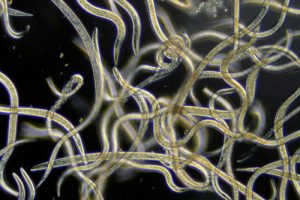
The use of nematodes in the control of destructive lawn grubs
Eating a meal with just a knife is less successful than using a knife and fork. Often when we are dealing with pest management, we want to use all the tools available to us in order to gain a better result. Due to the hard work of Syngenta, we now have a fully licensed, effective, […]
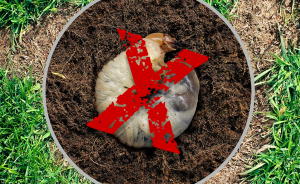
Controlling Leather Jackets and Chafer Grubs in Lawns
Syngenta has developed and successfully licenced a new insecticidal control that is proven to be effective in the control of leather jackets and chafer grubs. We are now able to use this product on lawns to help control these harmful and destructive lawn pests. The development of our Grub X treatment The active ingredient in […]
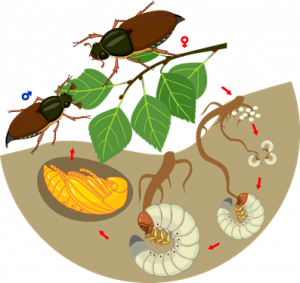
Developing a new pest control
Important progress in the control of destructive lawn grubs Leather jackets (crane fly larvae) and chafer grubs (June bug larvae) are destructive turf pests that can cause extensive lawn damage. For many years there has been limited options for the control of these lawn pests. Until now that is. My team and I visited one […]
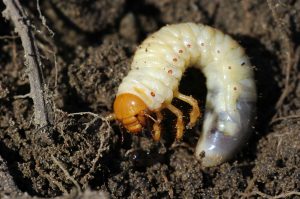
Chafer Grub and Leatherjacket management in domestic lawns.
Issues relating to lawn damage from populations of these damaging grubs seem to be increasing and this article sets out to understand the environmental factors influencing this and what might be done to control the problems. Lawn conditions that encourage or support grass eating grubs Moss and Thatch: It is considered that mossy lawns or […]
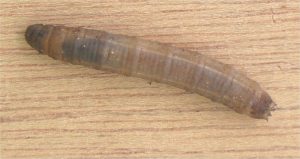
Lawn Damage by Leather Jackets, Daddy Long Legs and Crane Fly
Most of us know what a Daddy Long-leg looks like. This flying insect is harmless enough, but the larvae that comes before it is a major lawn pest. Let’s take a look at dealing with Leather Jackets in your lawn. Lifecycle of a cranefly Before it becomes a flying insect, the crane fly is a […]
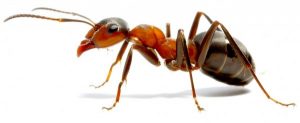
Lawn Ants
Lawn ants can be a real nuisance, let’s take a look at what can be done to reduce their numbers. Ants, like bees, live in a colony. An ant colony is made up of one or more fertile, egg-laying females and many hundreds, if not thousands of worker ants. The job of the queen, once […]

 Established 2016
Established 2016



